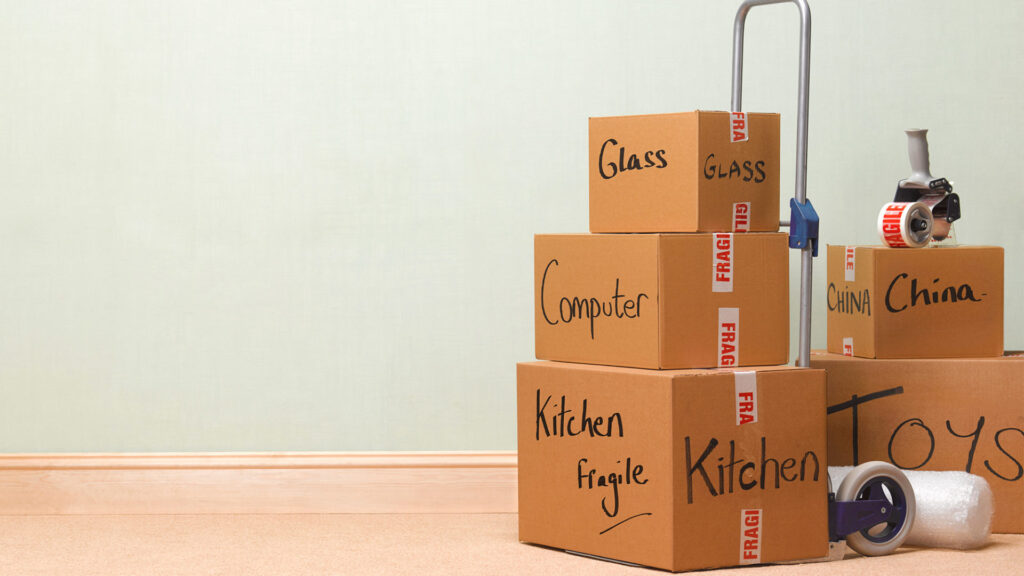Moving has always been stressful. It requires so much organization, planning, and tying up a lot of loose ends. With the pandemic affecting everyone, there might also be a chance where people would have a tight budget. This could throw your planning into disarray and affect the efficiency of your move. Hence, what are a few things you can keep in mind that allow you to move on a tight budget?
Table of Contents
1. Plan effectively

A good moving strategy is important if you want to save a lot of money. This would give you an approximation of how much you would have to spend and where some amount would go. This is extremely useful to plan where to cut back on a few things to save money. You can make a thorough checklist by sorting all your things based on priority.
In fact, certain moving companies have moving calculator features to give you an approximation of how much it would cost. They would even have plans that are budget-friendly to suit your needs. One such website you can visit is expomovers.com to get a better idea about the whole thing.
2. Donate, sell and declutter

There would be a lot of things that you won’t need anymore. These would include old dresses and clothes, certain furniture, books, and other things that you wouldn’t need anymore but you’ve held on to them either for sentiment sake or for other reasons. It would take up a lot of space in your new place and you would require boxes for the whole venture.
Sometimes there are things that you can sell to pawn shops or recyclers and get money in return. This would help contribute to your budget and you’d be getting rid of a few items you wouldn’t need. You can follow Martha Stewart’s tips for decluttering; she said you could get rid of things that no longer spark joy. Hence, this would help you understand what to hold on to and what you can lose.
This would also help in tax deduction. The IRS permits you to deduct charitable donations upto 50% of your total income if you contribute to any registered NGOs or charity trusts. All you would need is a receipt. This would benefit you monetarily a lot.
3. Don’t underestimate the cost of packing materials

Packing materials actually come in cheap, but when you’re moving a whole house, this can add up and cost you a significant bit! There are ways where you can get boxes for free from recycling dumps and home-rental platforms that allow the reuse of old moving boxes. There are social media groups that help you find cheap packing supplies that you can use for a low cost. Garage sales and offices often have empty boxes lying around which they wouldn’t need, you can purchase those.
Another trick is to make sure you don’t use only boxes for everything. Sacks, pillow covers, even clothes can work as packing material. Some people even use food storage containers, suitcases, and laundry baskets to save the cost of getting boxes. This is a well-worth-it tip to try and would save you a lot of money.
4. Avoid the moving season

Many people move in the summer or spring as they can wear lighter clothes which would be more convenient when making the move. There won’t be snow, ice, puddles, or leaves on the ground that can be a bother while moving. However, if you can afford to reschedule to another season, it just might help you save money.
Many moving companies have high rates during the active seasons, they would lower their prices when there is relatively less movement. Winter and autumn are the preferred months to move if you want to make it budget-friendly. You can negotiate and score a move at a lower rate and you might get more services available. Your family also might be more available as it is the holiday season and you can even throw parties at your new place to thank them.
Also, do not use weekends to move as the movers and packers tend to be booked then. Make sure you move on weekdays to avoid expensive shifting. Also, rental agreements and leases end at the end of the months, so the mid-month times are good for moving as the rates would be relatively less. If you can manage to make an arrangement with your owners, this would be a good thing to do.
5. Don’t stress

This is a very important and underestimated factor. Try not to stress about anything. Moving can have a lot of responsibilities; it can be draining financially, mentally, and physically. The demands of a move can cause a lot of stress and tension. This could be detrimental financially as you might tend to stress-shop or say yes to anything the moving company says and this could cost you a bit more.
Stressing reduces your awareness factor and might hinder your planning effectiveness. So, avoid taking a lot of tension, do not be scared, everything will be fine. Things would not get lost, certain things, if they are still at your old place, are retrievable, and availing of the services of a good moving place would guarantee you the safety of your belongings. Stressing and anxiety would ruin the whole moving experience and drain you, so avoid it as much as possible. You can do this by planning carefully and taking things step-by-step.
Conclusion
Moving and shifting is a huge step in your life. It doesn’t matter if you have fewer things or more, moving still can be quite jarring and stressful. That too, if you have a tight budget, things can be quite shaky. However, strong planning and cutting back on a few unnecessary purchases or expenditures can be good on your budget. Investing in a good budget-friendly plan with your movers can also be a wise step. Avoiding stress and getting things efficiently done would work wonders if you want to move safely and speedily into your new house!
 World Magazine 2024
World Magazine 2024






